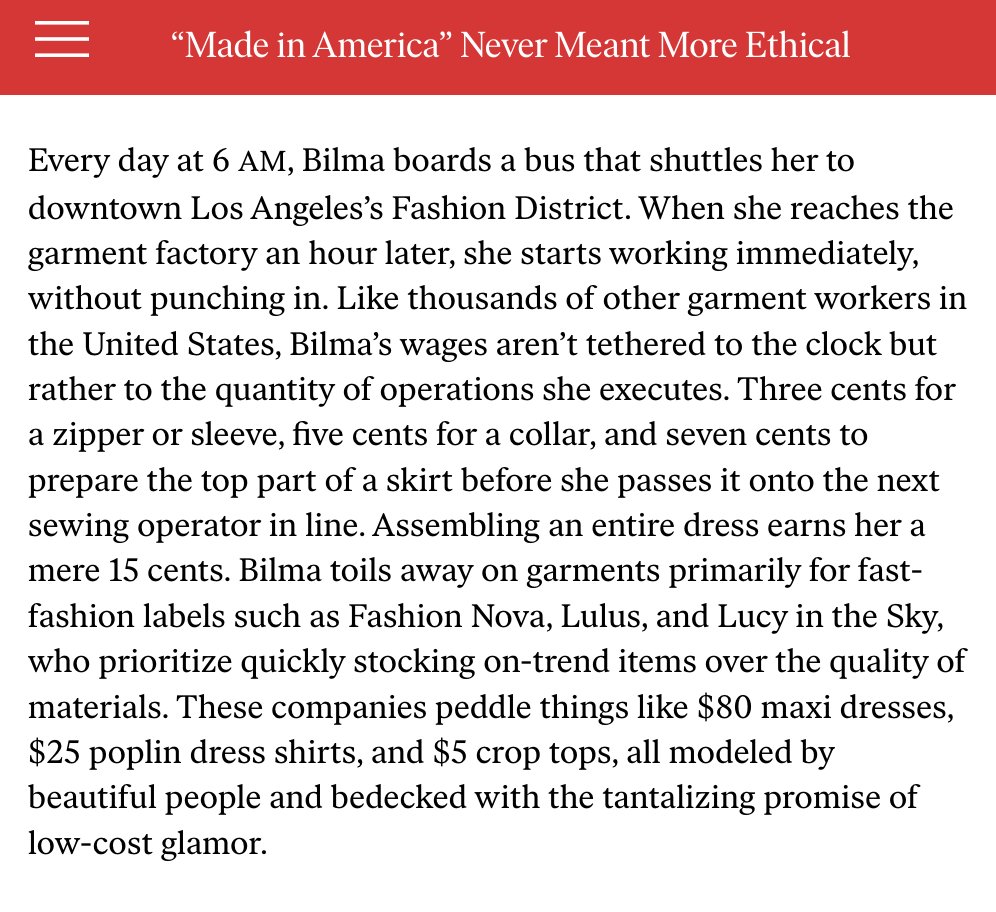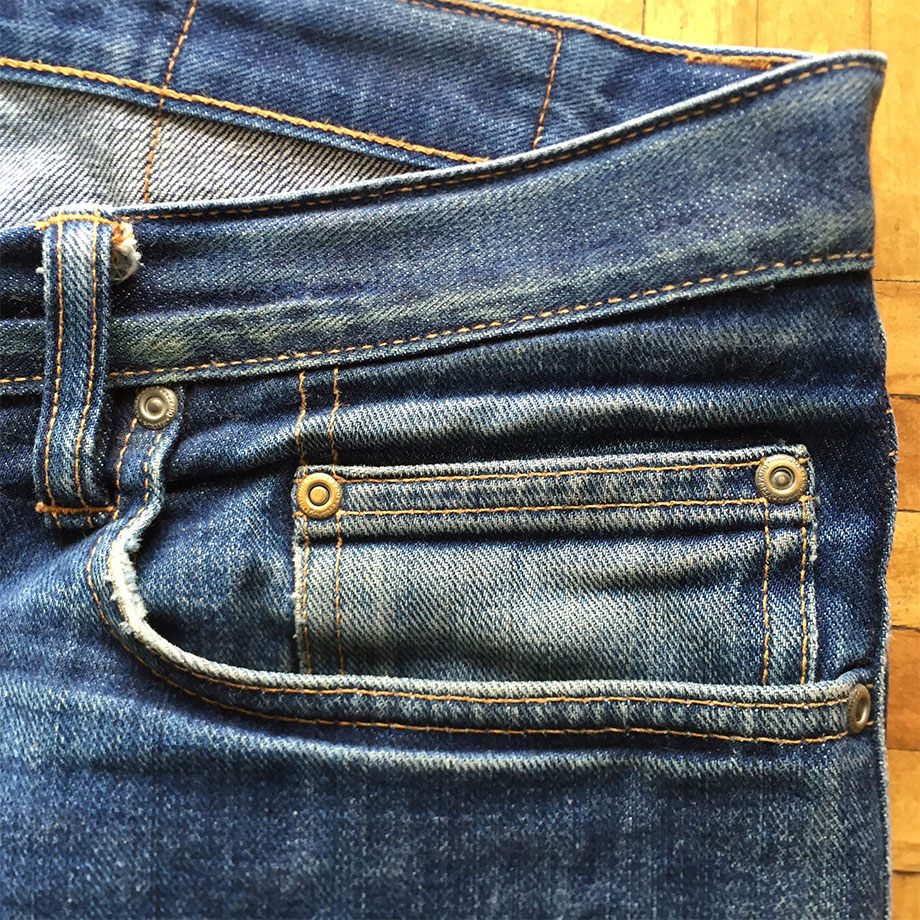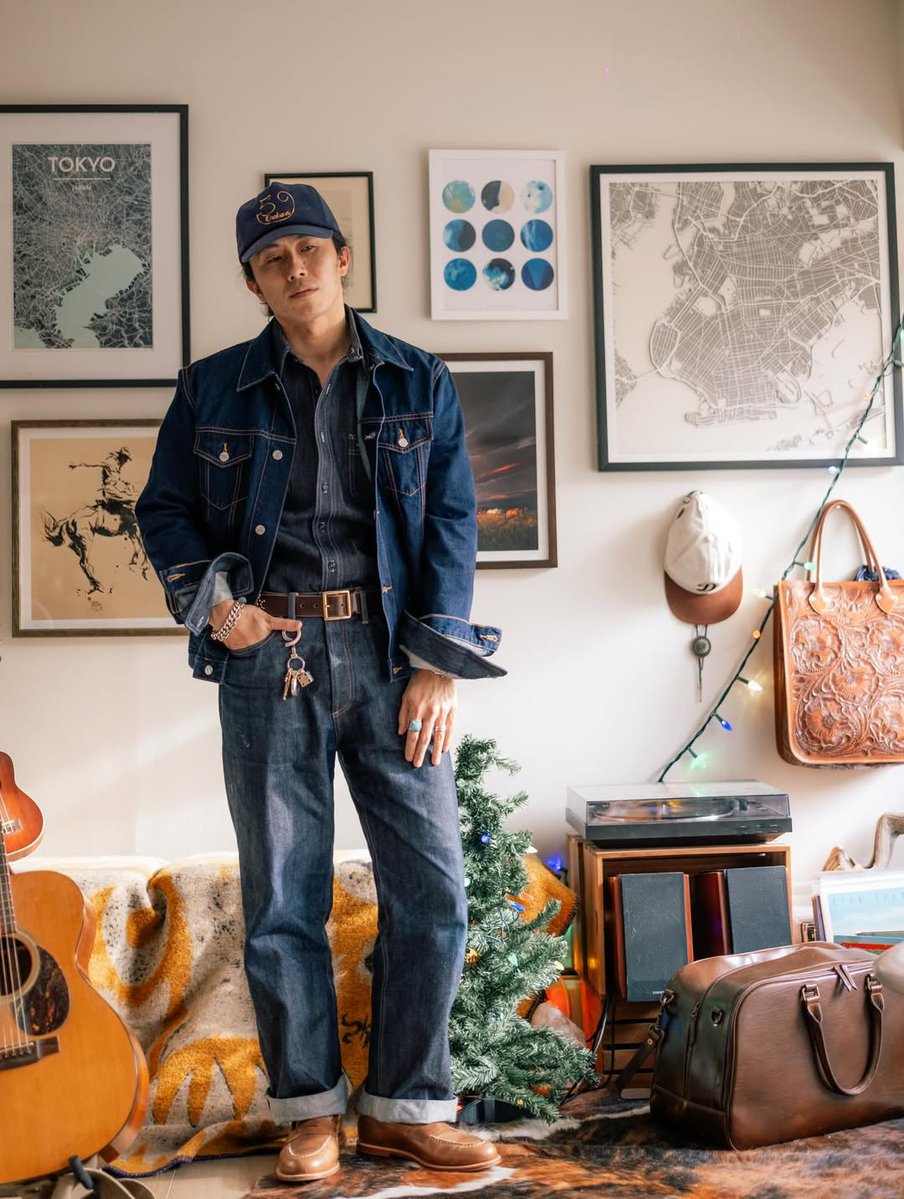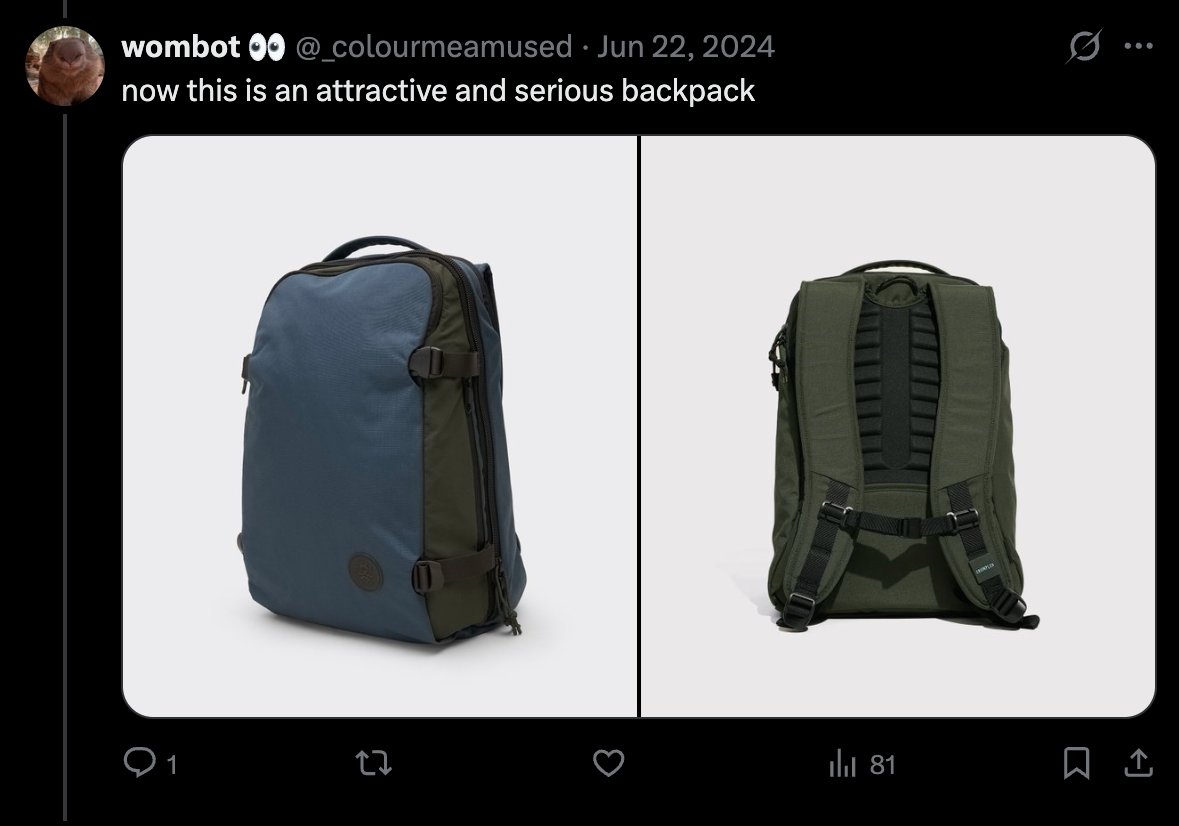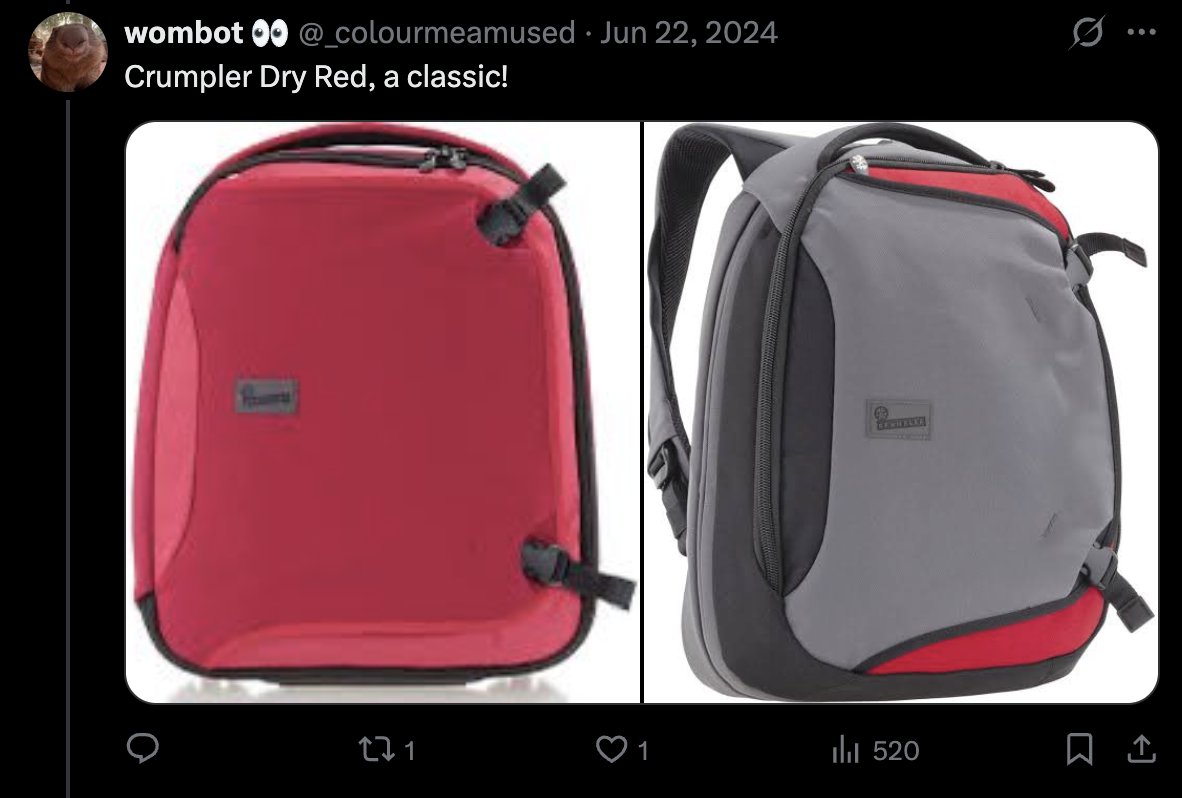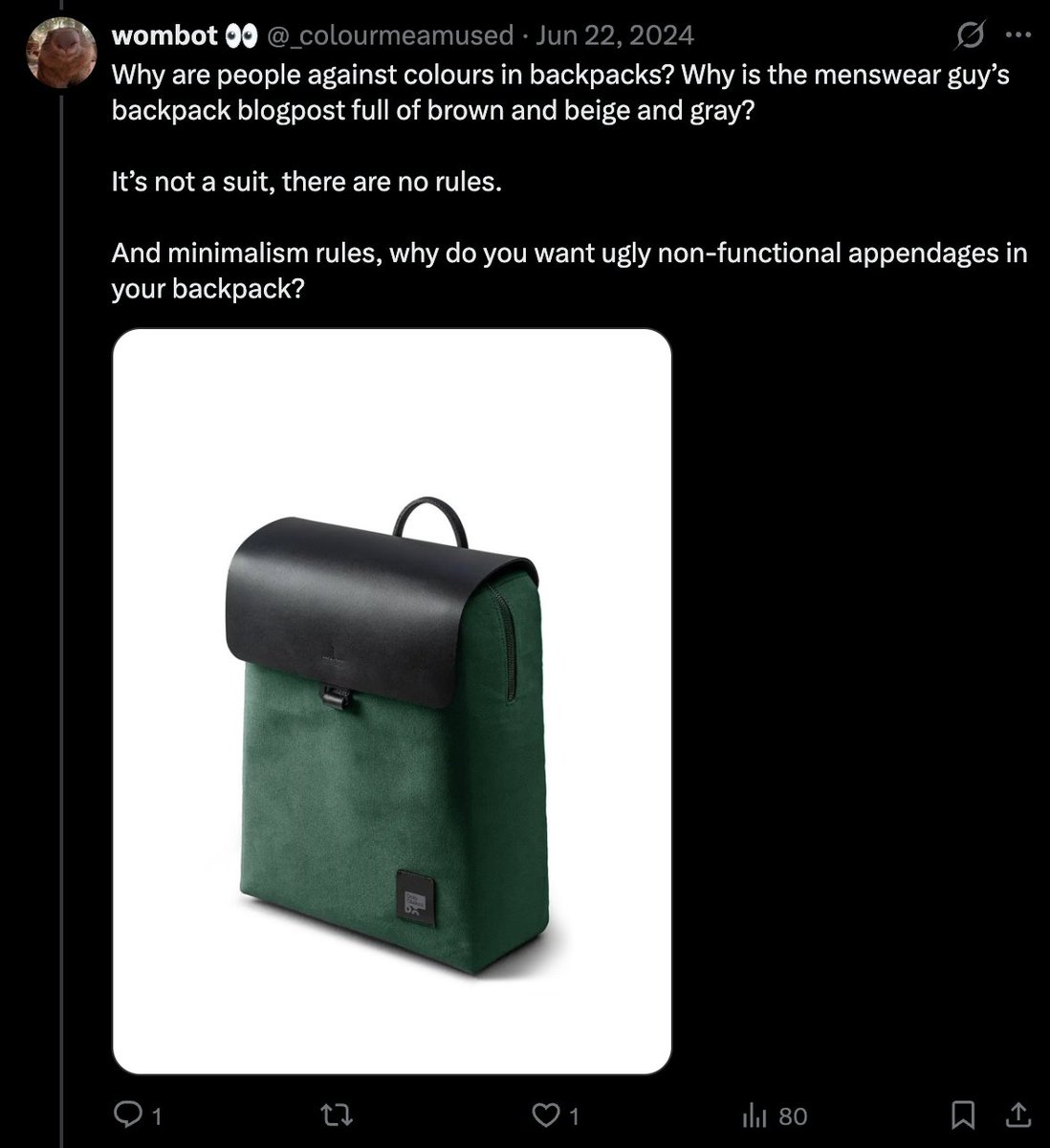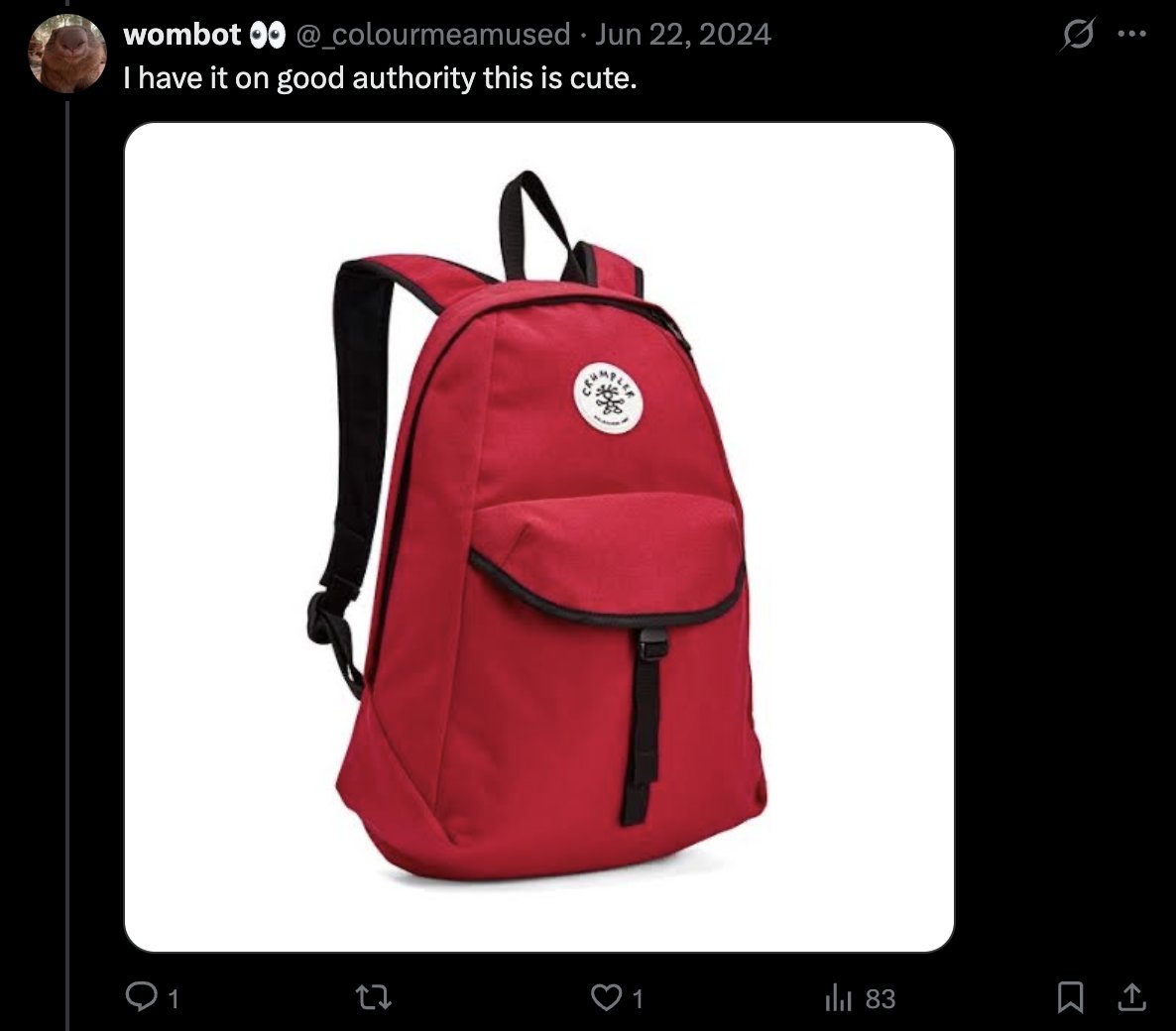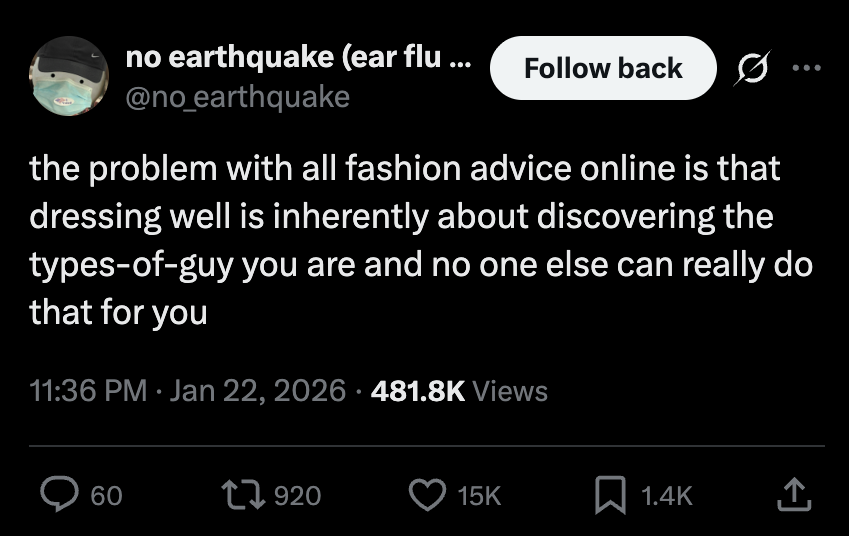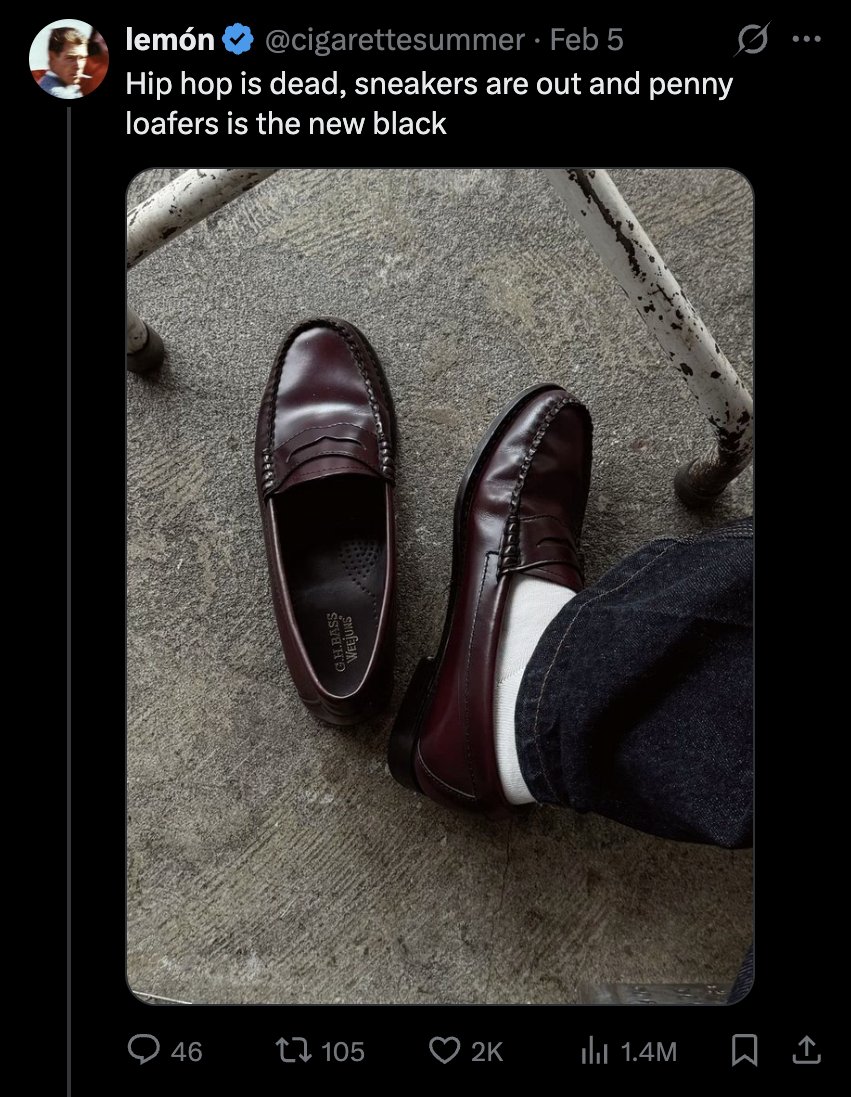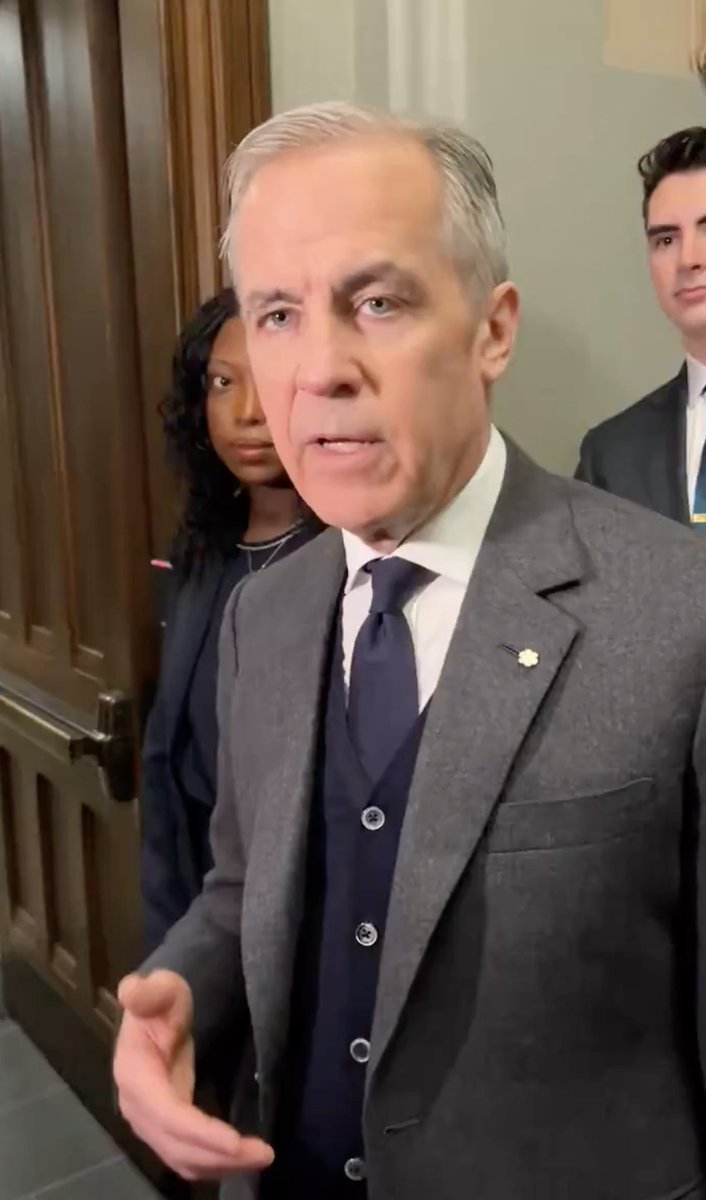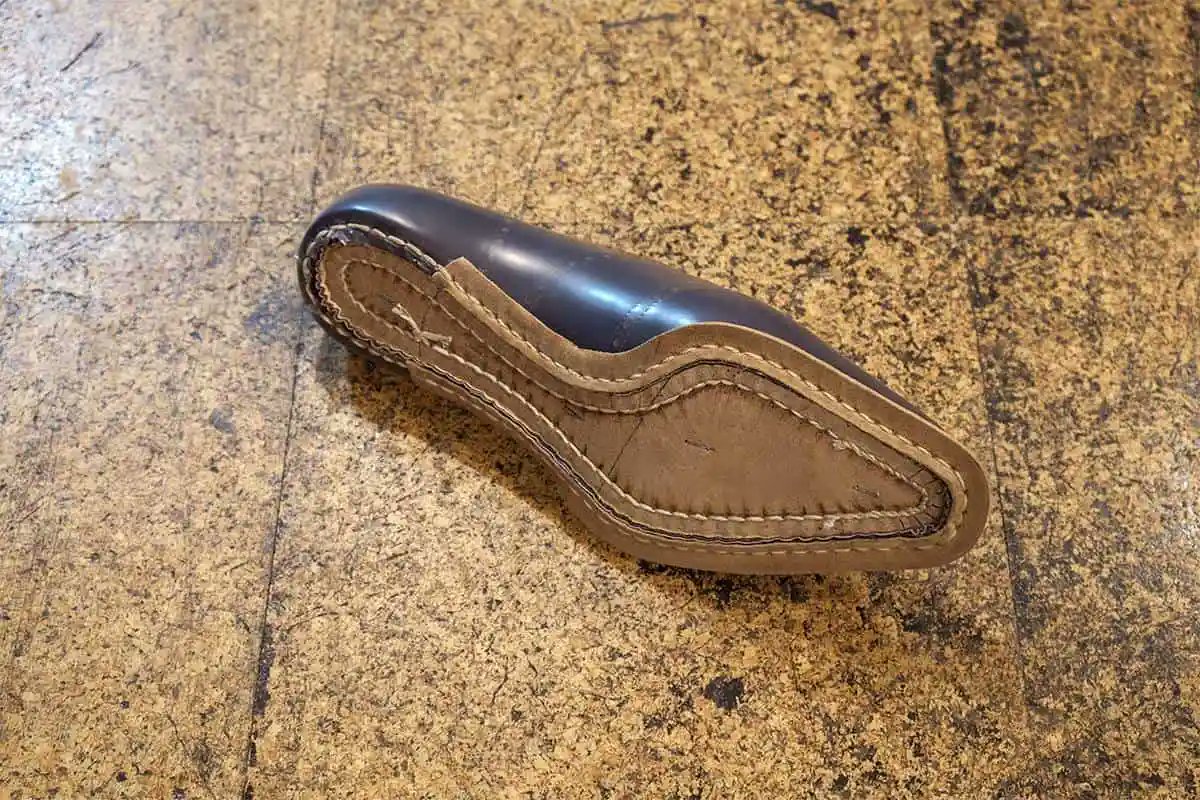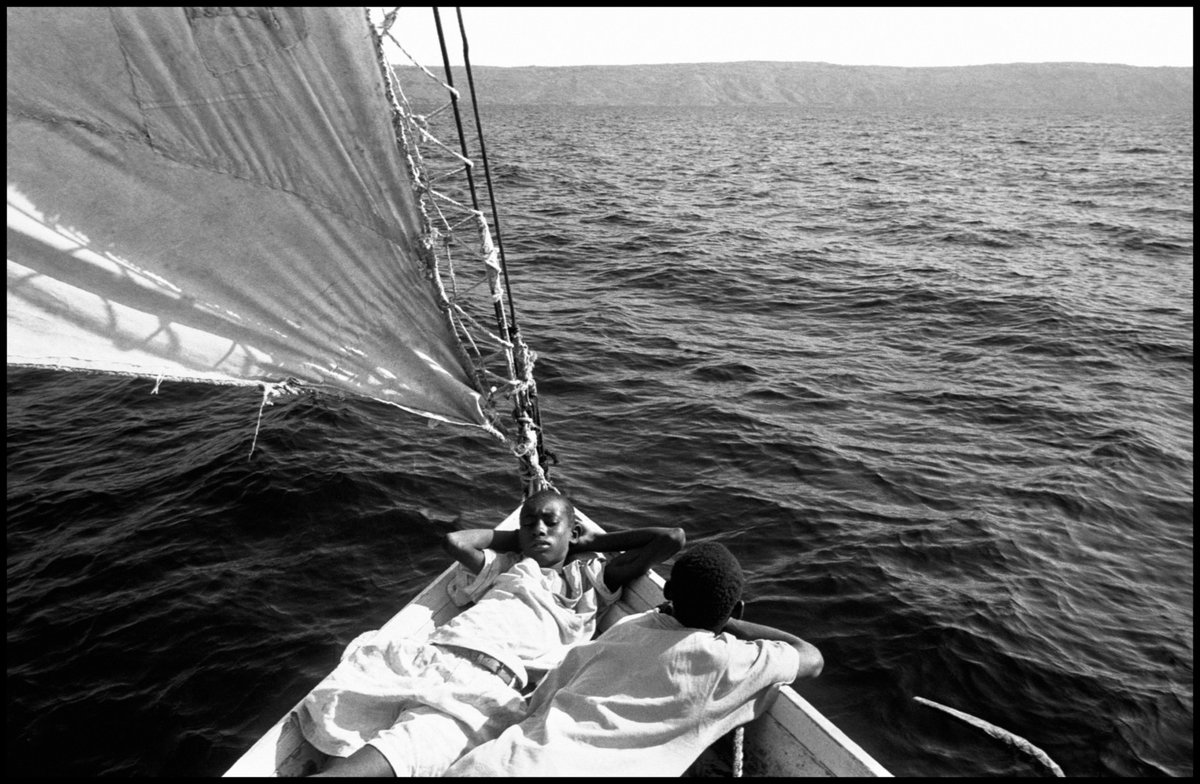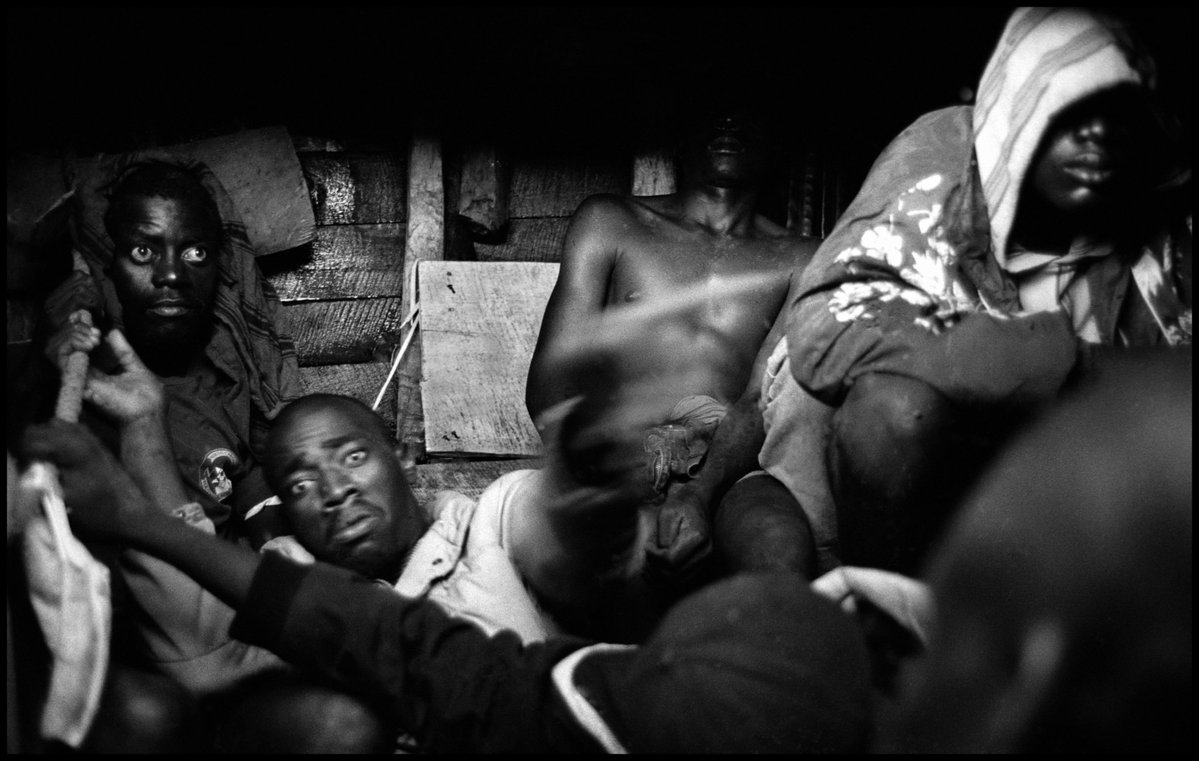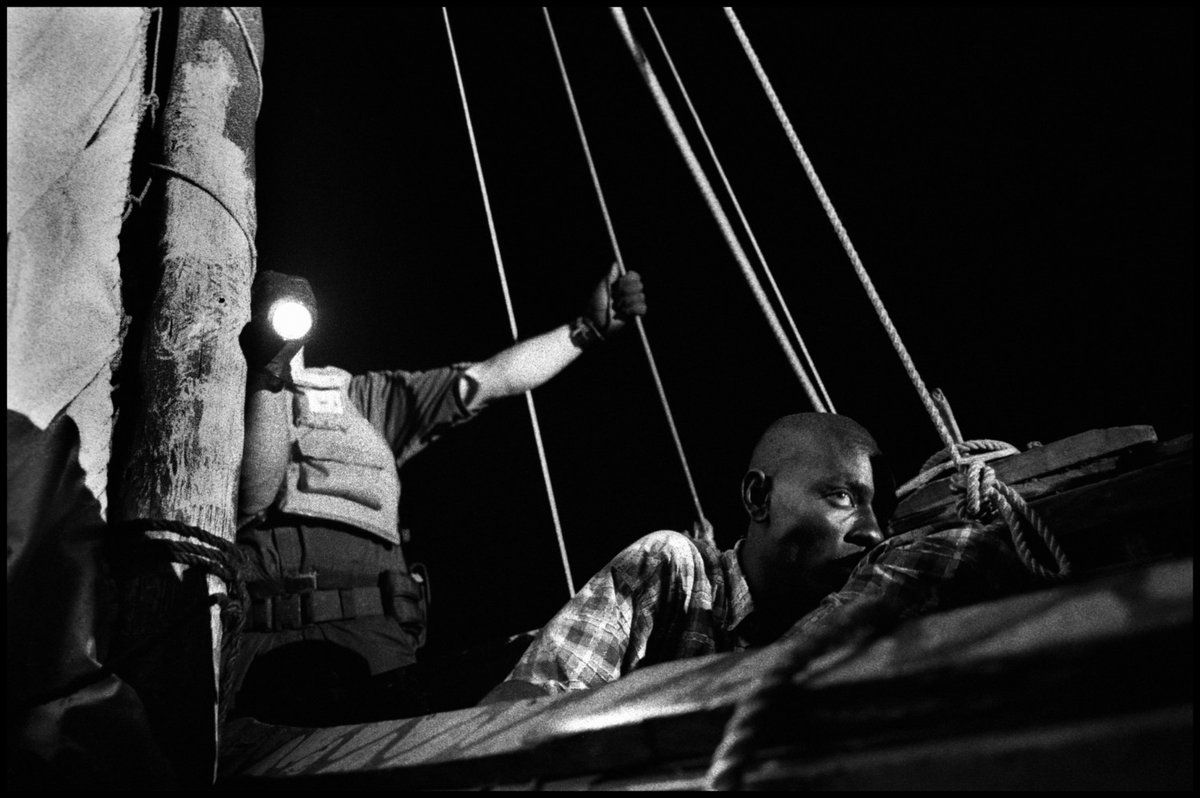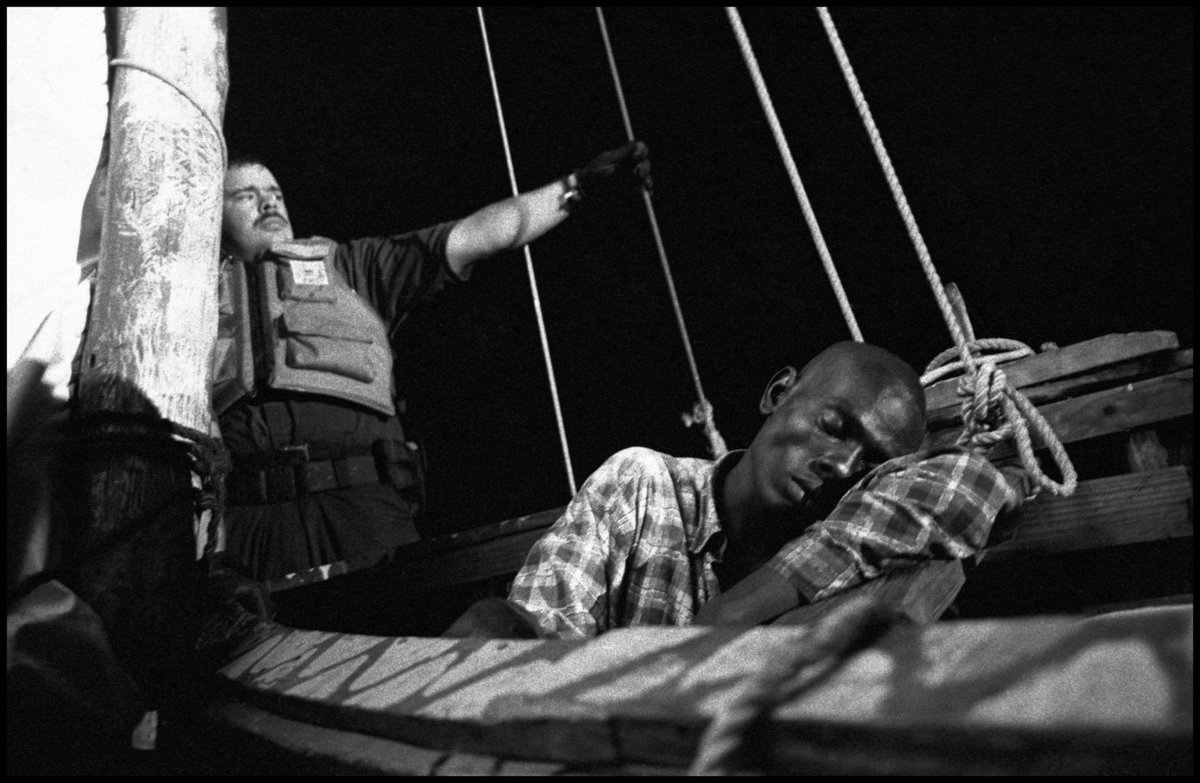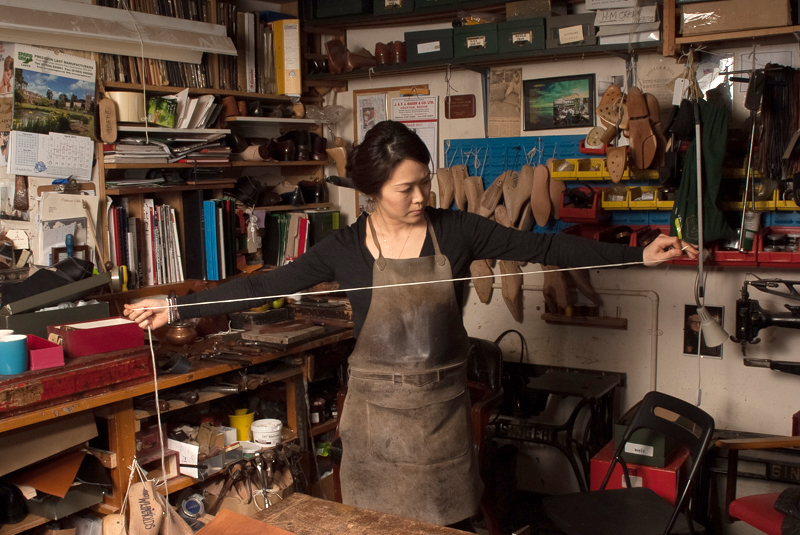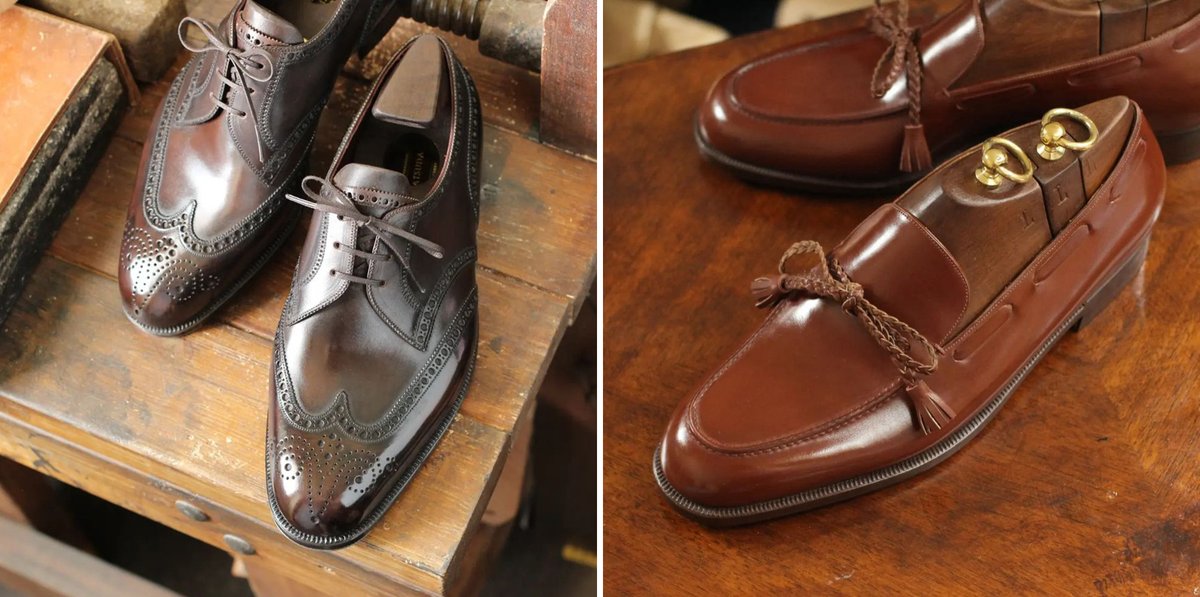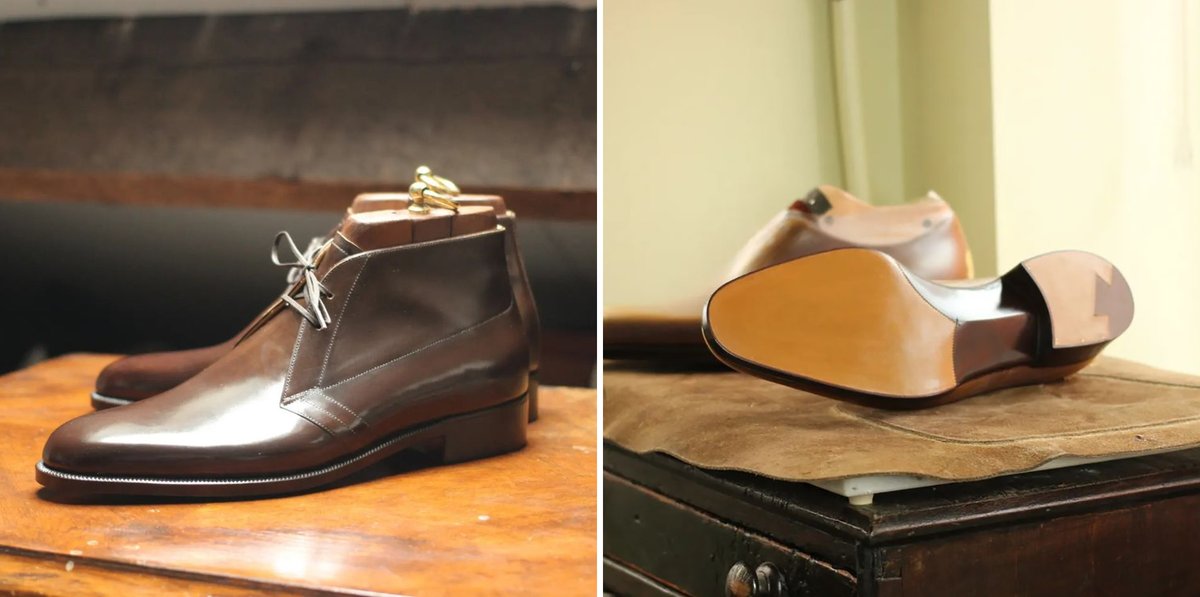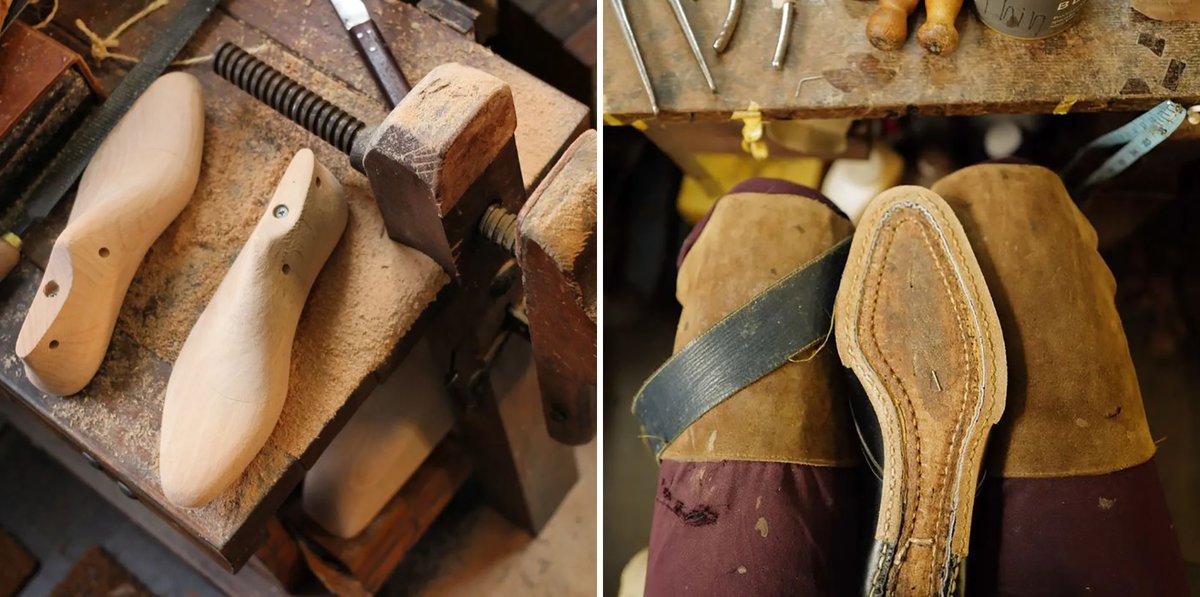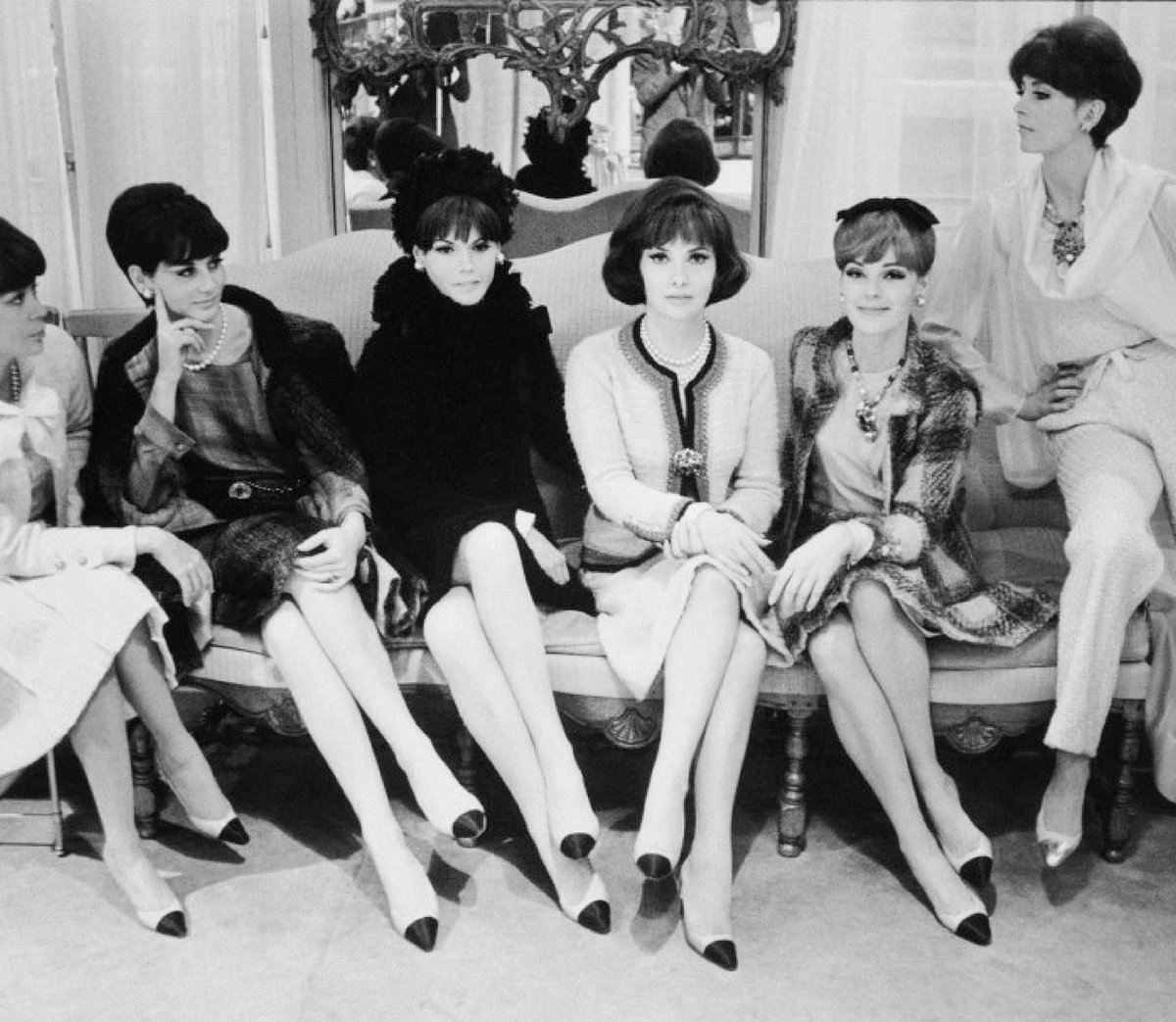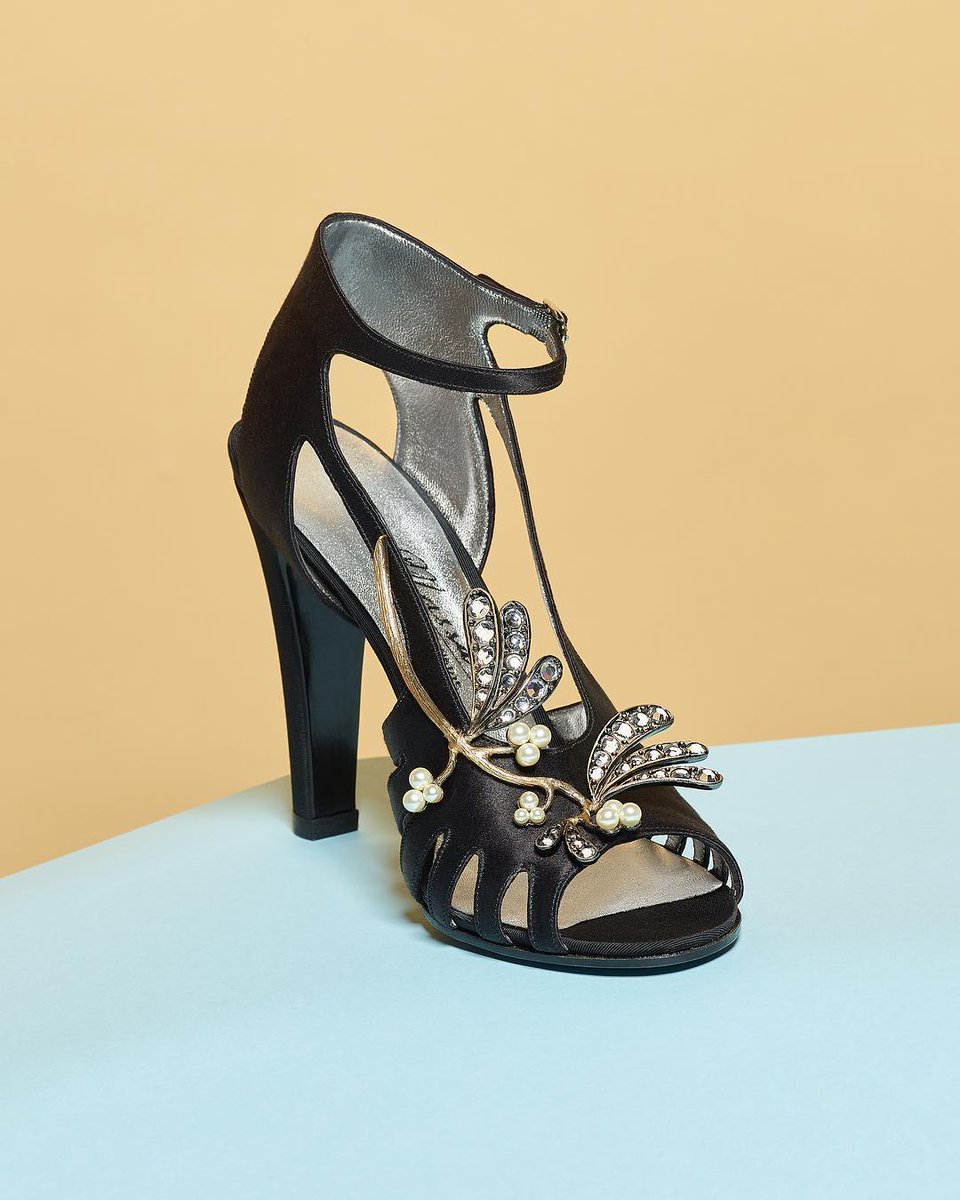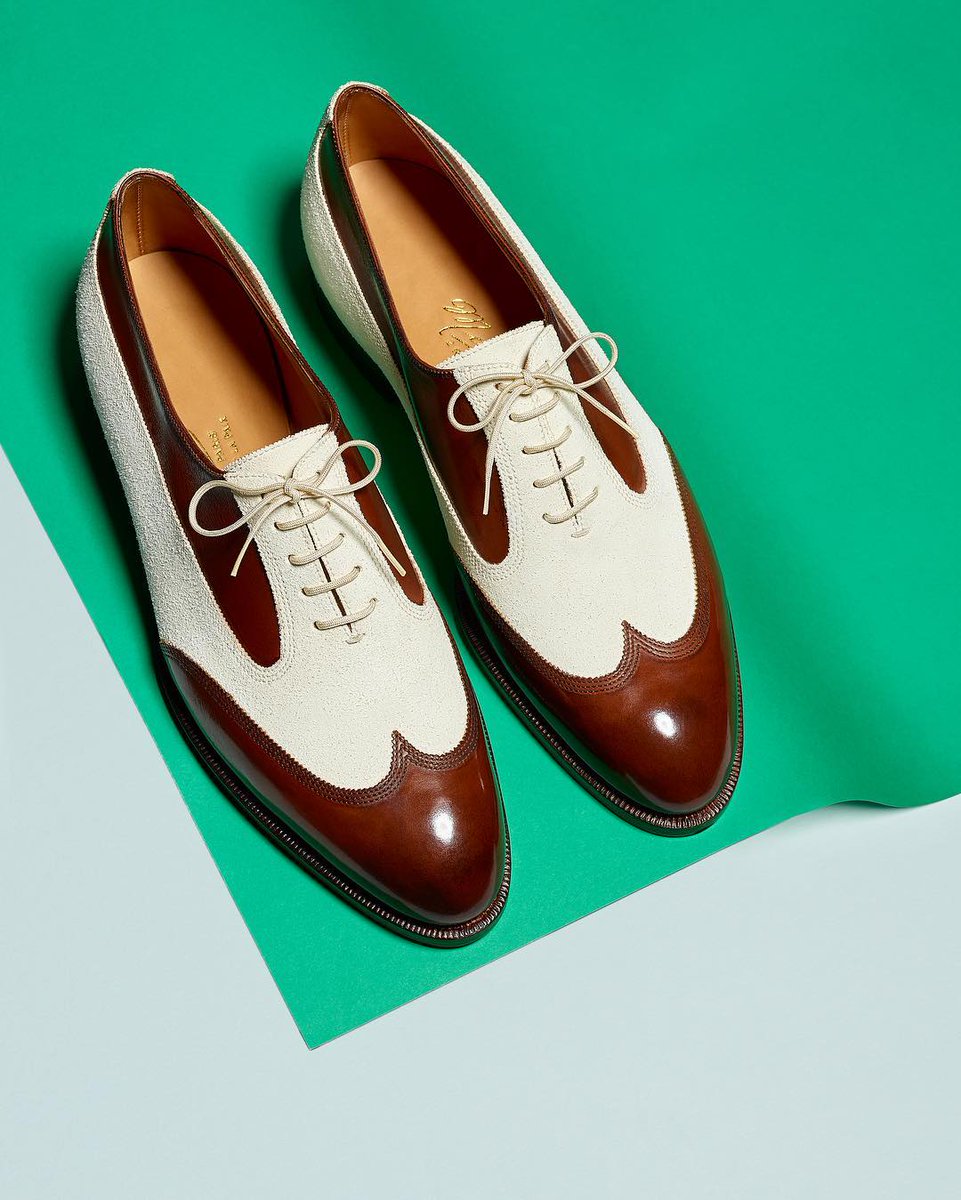Style Lessons from George Costanza
In this thread, I will talk about some dos and don'ts of men's tailoring using one of my favorite style icons, George Costanza. 🧵
In this thread, I will talk about some dos and don'ts of men's tailoring using one of my favorite style icons, George Costanza. 🧵
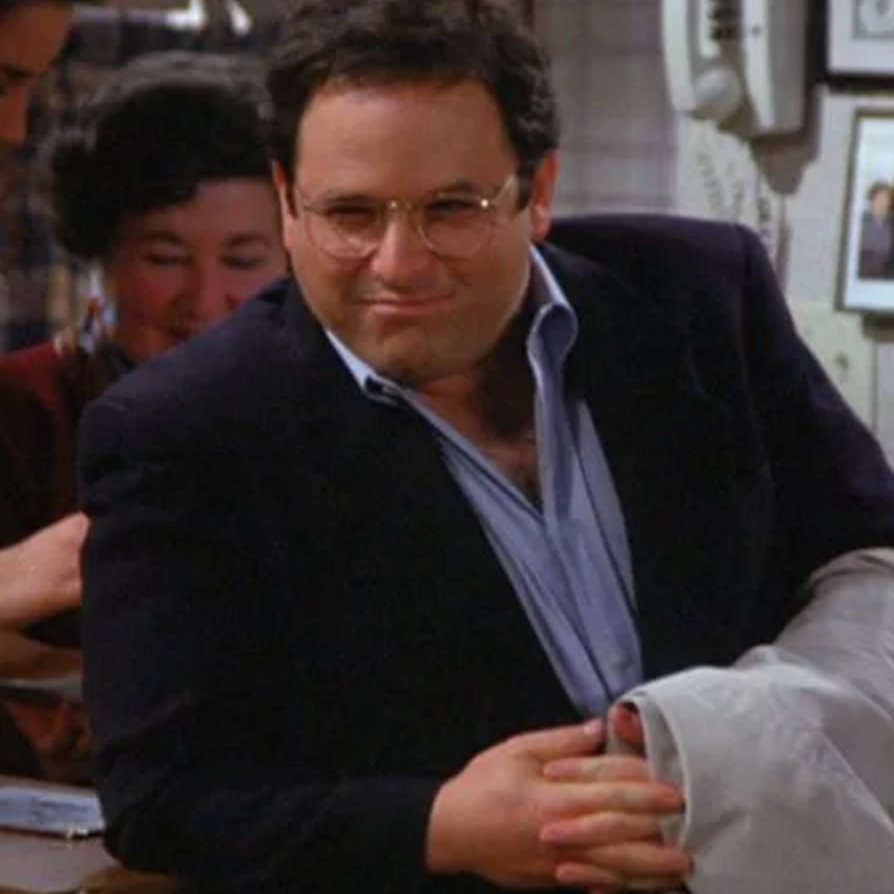
1. Don't wear suit jackets by themselves
If you do, make sure the jacket can convincingly pass as a sport coat. DeSantis' is obvs wearing a suit jacket bc the fabric is smooth and shiny. George is wearing a slightly textured jacket with brass buttons (making it a blazer).

If you do, make sure the jacket can convincingly pass as a sport coat. DeSantis' is obvs wearing a suit jacket bc the fabric is smooth and shiny. George is wearing a slightly textured jacket with brass buttons (making it a blazer).


2. Formal suits should be worn with ties
By formal suit, I mean something you'd wear to a business meeting. Navy or grey, made from a smooth, sometimes shiny wool. These really benefit from having a bit of decoration between the jacket's front edges.

By formal suit, I mean something you'd wear to a business meeting. Navy or grey, made from a smooth, sometimes shiny wool. These really benefit from having a bit of decoration between the jacket's front edges.


3. Always tuck in your shirt
Casual outfits can go either way, depending on the outfit and the shirt. But outfits that involve traditional tailoring don't look right with an untucked shirt, even in casual iterations such as with chinos or jeans.

Casual outfits can go either way, depending on the outfit and the shirt. But outfits that involve traditional tailoring don't look right with an untucked shirt, even in casual iterations such as with chinos or jeans.


4. Don't wear jackets that are too tight
A lot of guys nowadays are wearing jackets that are too small for them. You can check this in a few ways. First, see if you can comfortably fasten the coat. Second, see if you can comfortably hug someone. Should have room for movement.

A lot of guys nowadays are wearing jackets that are too small for them. You can check this in a few ways. First, see if you can comfortably fasten the coat. Second, see if you can comfortably hug someone. Should have room for movement.


5. Beware of low-rise trousers
Low-rise pants can work in some aesthetics, but they are rarely good for tailoring. This is partly because you never want your shirt to show beneath the coat's buttoning point when your coat is fastened. Consider high-rise pants—trust me.

Low-rise pants can work in some aesthetics, but they are rarely good for tailoring. This is partly because you never want your shirt to show beneath the coat's buttoning point when your coat is fastened. Consider high-rise pants—trust me.


6. Don't wear shirts that are too slim
Again, there should be room for movement. An easy way to see if your shirt is too small is to look for lines where the fabric is pulling, especially across the placket. George's shirt here is perfect.

Again, there should be room for movement. An easy way to see if your shirt is too small is to look for lines where the fabric is pulling, especially across the placket. George's shirt here is perfect.


7. Dark top; light bottom
While not a hard rule, you will have more success if you buy dark jackets and light pants. Black or charcoal trousers can be hard to wear in a classic tailored look. Stick to trousers in light grey, mid-gray, and tan, then jackets in brown and navy

While not a hard rule, you will have more success if you buy dark jackets and light pants. Black or charcoal trousers can be hard to wear in a classic tailored look. Stick to trousers in light grey, mid-gray, and tan, then jackets in brown and navy

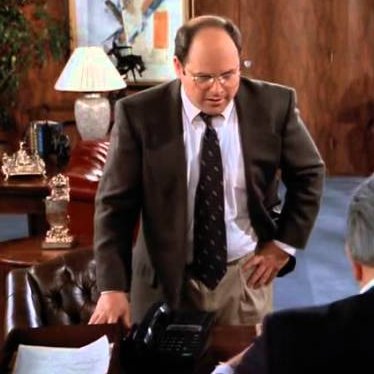
8. Beware of collar gaps
A tailored jacket's collar should always hug your neck, even when you're moving. When shopping, if you see the collar lifting off your neck, move on.

A tailored jacket's collar should always hug your neck, even when you're moving. When shopping, if you see the collar lifting off your neck, move on.
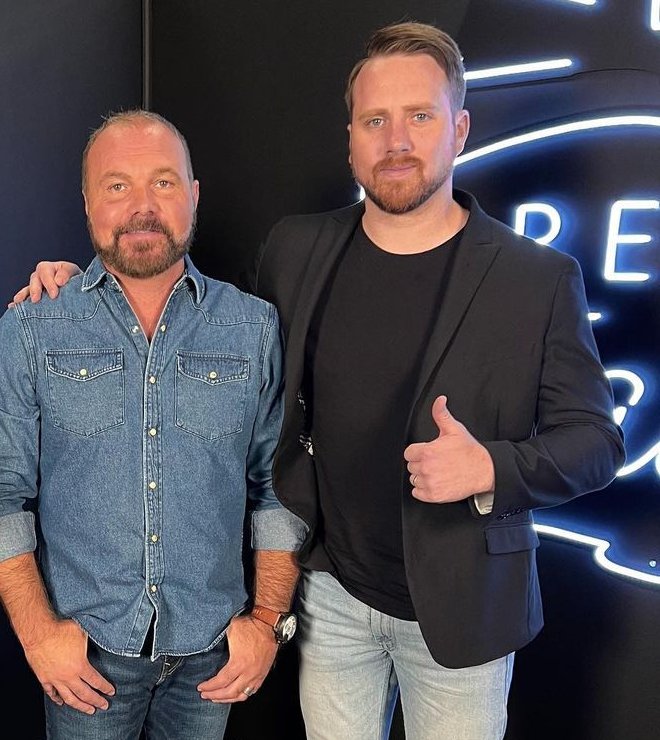

9. Check for balance
When trying on a jacket, check to see if the jacket hangs evenly from front to back. Tailors call this "balance." The front can be lower or level with the back, but it should never be higher than the back. This can be a challenge for barrel-chested guys.

When trying on a jacket, check to see if the jacket hangs evenly from front to back. Tailors call this "balance." The front can be lower or level with the back, but it should never be higher than the back. This can be a challenge for barrel-chested guys.


10. Don't wear black dress shirts
Especially in dressy materials like a very smooth poplin. If you want to wear a black button-up, try a casual material like a black denim Western shirt or needlecord. Or better yet, a knit like George here. It's more tasteful.

Especially in dressy materials like a very smooth poplin. If you want to wear a black button-up, try a casual material like a black denim Western shirt or needlecord. Or better yet, a knit like George here. It's more tasteful.


If you enjoyed these looks, it's perhaps worth pointing out that they appeared on television nearly thirty years ago. The fact that George Costanza remains a style icon is a testament to the timelessness of these guidelines. Ignore them at your peril. 

• • •
Missing some Tweet in this thread? You can try to
force a refresh



